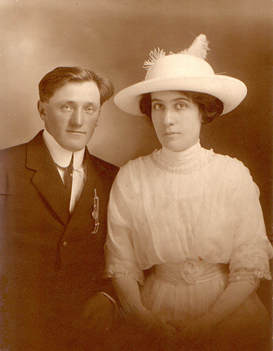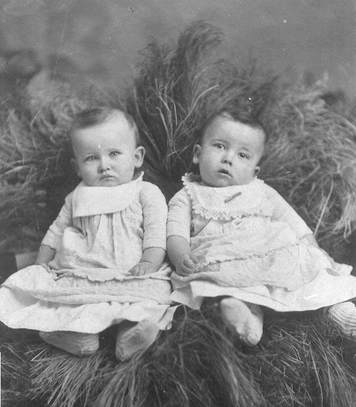|
This week seemed like an appropriate time to discuss taxes. As I write this on the day that in a normal year, personal taxes would be due. We can use tax records to discover more about our ancestors. Taxes can be a surprisingly useful resource to fill in the blanks between census years, church records and civil records. Let’s look at what is available. When beginning family history, we are searching for the basics but as we grow and expand our research, we discover the smallest tidbit of information will help us. Tax records for land can provide us with information about place, dates, and income. We can get a better understanding about how our ancestors are doing in place and time. Have they been farming in the same location for years? Or are they renting or moving because they can’t afford to pay the land taxes? Tax related paper trails give us a glimpse into what was happening in our ancestors.
Finding tax information can be a treasure hunt—not everything is online! Here are a few resources that I have found useful. Tax Records I was not looking for tax information when I stopped at the Roseau County Historical Society and Museum in Roseau County, Minnesota a few years ago. Much to my surprise they had copies of land taxes records from the early 1900s. These records were called Assessor’s Return of Taxable Real Property of Township. These records provided the following: name, school district, land description as well as section and number of acres, land value, taxes due and when paid. It also included a listing and value of furniture, livestock, and farm machinery. These are great documents that tell us how our ancestors are doing and what things they owned related to their farm. In my case these records included information about two bachelor great uncles. Without wives or children, there isn’t a great deal of information left to tell their story across generation. This provided some more nuggets about how they were doing in the early 1900s. Will every historical society or regional research center have this information? Unfortunately, no. In my opinion, these old tax records get transferred from the township or county because there isn’t room any longer at the courthouse or because of their age, they aren’t considered relevant anymore and packed off to long term storage. It’s worth the effort to check with your local historical society or courthouse to see if that information is available to view. During the pandemic, you’ll need to see if they are open or require appointments. Personal Income Tax If you have any personal income tax information for an ancestor, it might be related to the death of a spouse and that first tax that was filed. These papers can give you an idea of how the family was doing but would not be readily available to the general public—just part of your own personal stash of family papers. Use these in a respectful manner to create context in your family story, remembering the historical timeframe of the information. Online Tax information Ancestry.com has tax records. A quick search of “taxes” provides a list of tax related records for various locations. One example of tax records: Ancestry.com. Sutton, Surrey, England, Tax Collection Rate Books, 1783-1914 [database on-line]. Provo, UT, USA: Ancestry.com Operations, Inc., 2016. Original data: Rate Books. London Borough of Sutton, Sutton, England. You will not find every place or locality but perhaps you’ll be lucky and find your ancestor. If you have an Ancestry subscription, it is worth checking out. If you do a quick search at ArchiveGrid, you might be surprised by what is available. I searched “North Dakota Taxes” and the results returned 928 items! Many of these are printed copies that can be viewed at specific archives. As an example, “Roseville, North Dakota tax ledgers, 1882-1883 which includes 2 printed tax ledgers, completed in manuscript, documenting tax collection in Roseville, North Dakota, 1882-1883, Ledgers include the name of the taxpayers, valuations of property, including land, county and territory taxes, taxes for schools, bridges, and other projects, total tax paid, and the paid date. Location of these tax ledgers”: Yale University! How in the world did tax papers related to North Dakota end up back East? The papers are part of a collection titled Yale Collection of Western Americana at Beinecke Rare Book and Manuscript Library. You can view the Catalog Record and Contact Information for this information. I imagine that you might be able to request assistance if you’re unable to travel to a particular archive. FamilySearch Wiki has a page dedicated to United States tax records, including links specific to states. Like Ancestry, you’ll need to be creative in searching to find. Try your luck at searching online for historical property tax records in your region of interest or look at a favorite genealogy site. I chose to search for property taxes at the Minnesota Historical Society site. You can view information about their records here. The description from their site: “MNHS has assessment rolls and tax lists for 55 counties. Assessment rolls for real property include the property owner's name; legal land description; building and land values used to provide estimated market value; classification and assessed value of each parcel of property. Assessment rolls for personal property include the property owner's name with assessed value for such items as livestock, jewelry, furniture, household and farm items, and other personal holdings. Tax lists include only summary financial information and indicate the actual amount of taxes paid on each person's real and personal property. The records are arranged chronologically, then alphabetically by political subdivision.” While taxes usually do not have a positive connotation in our lives, when it comes to genealogy, they can be helpful. If you have an ancestor that has disappeared between census records and you haven’t found a death record yet, tax records may help you narrow down the 10-year time frame. Or perhaps there are no tax records after a certain date…did they move? Die? Sell the land? Genealogy creates more questions than answers sometimes but looking into tax records may help you discover some new information about your ancestors. Happy Searching! In this world, nothing is certain but death and taxes. --Benjamin Franklin
0 Comments
Leave a Reply. |
AuthorWith a lifelong passion for genealogy and history, the author enjoys the opportunity to share genealogy tidbits, inspiring others to research and write their family story. Archives
July 2024
Categories |




 RSS Feed
RSS Feed